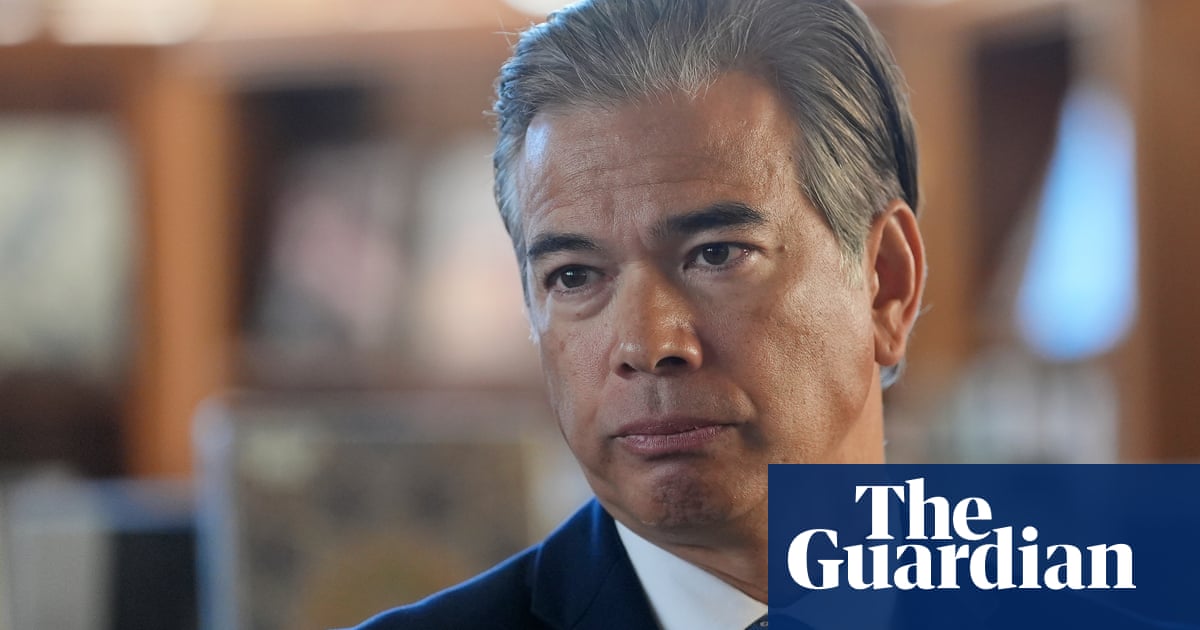Legislators in at least four states have introduced bills this year that would change the legal definition of “homicide” to include abortion – proposals that pave the way for states to charge abortion patients with murder.
Pregnancy Justice, a group that tracks these kinds of efforts, says it has recorded more “homicide” bills this year than ever before. Abortion bans have typically penalized providers, rather than patients.
“That raises significant alarm – both that we’ve seen more than we have in the past in a single legislative session already, and that they’re not generating the level of outrage or attention or scrutiny that they have in years past,” said Dana Sussman, senior vice-president at Pregnancy Justice. “The more of these kinds of bills that get introduced, people get numb to the idea of them, and they seem less and less radical.”
With Donald Trump returning to power in Washington DC, abortion rights supporters and opponents are waiting to see how the new president will handle one of the most divisive issues in US life. But red-state lawmakers have already filed a host of anti-abortion proposals over the last few weeks.
In addition to the “homicide” bills, many of these bills target access to abortion pills – which account for more than 60% of US abortions – and seek to limit minors’ ability to obtain abortions. In at least two states, Montana and Missouri, lawmakers are also seeking to implement legislation that would in effect roll back the abortion protections guaranteed by recent ballot measures.
Last year, when elections loomed over legislators’ heads, states passed fewer abortion-related laws than they had in the five years prior, according to the the Center for Reproductive Rights. But this year, Kimya Forouzan, principal state policy adviser at the Guttmacher Institute, suspects that lawmakers will take Trump’s victory in 2024 as a green light to pursue anti-abortion policies more aggressively.
“There’s generally going to be an emboldening of state legislators who are opposed to reproductive and sexual health and rights, given the new administration,” Forouzan said.
‘Homicide’ and ‘fetal personhood’
Bills that redefine abortion as “homicide” strengthen a legal doctrine known as “fetal personhood”, which seeks to grant embryos and fetuses legal rights and protections – sometimes at the expense of the women carrying them. If fully enacted, fetal personhood would not only ban abortion but would rewrite entire arenas of US law, from traffic regulations to taxes. So far in 2025, lawmakers in at least six states have introduced bills to strengthen fetal personhood, while Trump has tucked fetal personhood language into one of his executive orders.
The “homicide” bills have been introduced in Indiana, North Dakota, Oklahoma and South Carolina. The Oklahoma bill not only explicitly strips away protections that keep abortion patients from being prosecuted, but also separately prohibits anything that may “direct, advise, encourage or solicit” an abortion. That language, Pregnancy Justice worries, could have implications for free speech rights. It may be used to attack abortion funds and supporters sharing information with people in need.
The Oklahoma bill was co-authored by the Republican state senators Dusty Deevers and Warren Hamilton, who both belong to a far-right movement known as “abortion abolitionism”. While the mainstream “pro-life” movement shies away from the idea of punishing women for having abortions, abortion abolitionists believe that if abortion is murder, then abortion patients should be treated like murderers and punished accordingly.
after newsletter promotion
“I think we’re going to start to see those exceptions for pregnant people start to be repealed, so that pregnant people can also be criminalized under states’ total abortion bans,” said Elisabeth Smith, director of state policy and advocacy at the Center for Reproductive Rights. “All of this, I think, for most people, feels pretty hypothetical – unless, of course, they or a loved one or a friend are living in a banned state and has needed access to care. But it’s critical to say anti-abortion folks have made their ultimate goals clear.”
Limits on abortion pills
In the years since Roe fell, anti-abortion activists have lobbed attack after attack on abortion pills, or medication abortion, which are increasingly facilitated by the mail. In spring 2024, more than 19,000 abortions were provided each month through telehealth appointments, which rely on the mail to deliver the pills, according to #WeCount, a research project by the Society of Family Planning.
“Mailed medication abortion is an existential threat to the anti-abortion movement,” said Rachel Rebouché, the dean of Temple University’s law school. “It’s hard to police.”
Red states, however, are going to try. Indiana, which bans virtually all abortions, has introduced three separate bills that would ban people from sending abortion pills to individuals in the state. One of those bills also outlaws the possession of abortion pills.
Over in Oklahoma and Tennessee, which ban almost all abortions, lawmakers have introduced similar bills that would also ban people from mailing abortion pills – and, in the case of the Tennessee bill, hold them liable for $5m if those pills were used in an abortion.
One of the Indiana bills would also reclassify mifepristone and misoprostol, the drugs typically used in US abortions, as controlled substances. That bill mirrors a similar proposal in Texas, where abortion is banned and where lawmakers have also introduced a bevy of bills to stop the flow of abortion pills. Both efforts also follow in the footsteps of Louisiana, which last year became the first state in the country to categorize mifepristone and misoprostol as controlled substances. That move, doctors warned, could endanger women’s lives, since the drugs can treat postpartum hemorrhage and other conditions.
Limits on minors’ abortion access
In 2023, Idaho became the first state in the country to ban people from taking minors across state lines for abortions without parental consent – a practice lawmakers dubbed “abortion trafficking”. Lawmakers in Mississippi, Missouri and New Hampshire are taking up Idaho’s mantle with similar legislation that restricts people from helping minors get abortions through pills or by helping them travel to a state where the procedure is legal. (Mississippi bans virtually all abortions, but it is currently permitted in New Hampshire and Missouri.)
Another bill in South Carolina – which permits abortion up until six weeks of pregnancy – proposes eliminating a legal process known as judicial bypass. For decades, minors have used this process to ask courts to grant them the right to undergo the procedure without involving their parents.
Abortion rights supporters warn that restrictions on minors’ access to abortion typically foreshadow wider restrictions.
“Every ban that we have seen on adult access to care started with a ban on youth access to care,” Smith said last month.

 German (DE)
German (DE)  English (US)
English (US)  Spanish (ES)
Spanish (ES)  French (FR)
French (FR)  Hindi (IN)
Hindi (IN)  Italian (IT)
Italian (IT)  Russian (RU)
Russian (RU)  4 hours ago
4 hours ago
























Comments